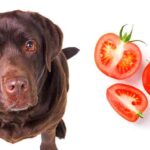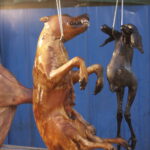When Do Dogs Get Parvo Shots
When Do Dogs Get Parvo Shots – Everything You Need to Know
Parvovirus is a highly contagious and potentially fatal viral infection that affects dogs, especially puppies. It attacks their intestines and immune system, causing severe diarrhea, vomiting, dehydration, and even death in some cases. Therefore, getting your furry friend vaccinated against parvo is crucial for their health and wellbeing. But when exactly should you schedule their parvo shots? Let’s find out.
First of all, what is parvo?
Parvovirus is a small but resilient virus that can survive in the environment for months or even years. It spreads through direct contact with infected dogs’ feces, urine, or vomit, as well as contaminated surfaces such as food bowls, toys, bedding, or grass. Once ingested by a dog, the virus attacks rapidly dividing cells in their body, particularly those in the bone marrow, lymph nodes, and intestinal lining. This leads to severe damage to the immune system and gastrointestinal tract, which can be life-threatening if left untreated.
What are the symptoms of parvo?
The symptoms of parvo vary depending on the severity of the infection and the age and health condition of the dog. However, some common signs include:
– Loss of appetite
– Lethargy
– Fever
– Vomiting (often yellow or greenish)
– Diarrhea (often bloody and foul-smelling)
– Dehydration (dry mouth and nose, sunken eyes, lethargy)
If you notice any of these signs in your dog, especially if they are younger than six months old or unvaccinated against parvo, take them to a veterinarian immediately. Parvo can progress rapidly and cause irreversible damage within hours.
How can you prevent parvo?
The best way to prevent parvo is through vaccination. The parvo vaccine is usually given as part of a combination vaccine that also protects against other common canine diseases, such as distemper, adenovirus, leptospirosis, and parainfluenza. The vaccine works by stimulating the dog’s immune system to produce antibodies against the virus, which can neutralize it before it causes harm.
When should you start vaccinating your puppy?
Most puppies receive their first parvo shot between six and eight weeks of age. This is because they still have some immunity from their mother’s milk, which contains maternal antibodies that can interfere with the vaccine’s effectiveness. However, this immunity wanes over time, leaving puppies vulnerable to infections. Therefore, a series of booster shots are needed to ensure long-lasting protection.
The second parvo shot is typically given around 10-12 weeks of age, followed by a third shot at 14-16 weeks of age. These intervals may vary depending on the type of vaccine used and the veterinarian’s recommendation. After completing the initial series of vaccinations, dogs usually need annual boosters to maintain their immunity.
However, if your dog has never been vaccinated against parvo or missed any shots in the series, talk to your veterinarian about catch-up vaccinations. They might recommend additional boosters or blood tests to check for antibody levels.
What should you expect after vaccinating your dog?
After receiving a parvo shot, your dog may experience some mild side effects such as soreness at the injection site, lethargy, or decreased appetite. These symptoms usually resolve within a day or two and don’t require any special treatment. However, if your dog shows severe allergic reactions such as difficulty breathing, swelling of the face or throat, or collapse, seek immediate veterinary care.
In summary,
Parvo is a serious disease that can affect dogs of all ages and breeds but is most common in puppies. Vaccination is crucial for preventing parvo and its potentially fatal complications. Puppies should receive their first parvo shot between six and eight weeks of age, followed by boosters at 10-12 weeks and 14-16 weeks. Annual revaccination is recommended to maintain immunity. If you have any concerns or questions about parvo vaccination, consult your veterinarian. Remember, prevention is always better than cure!



